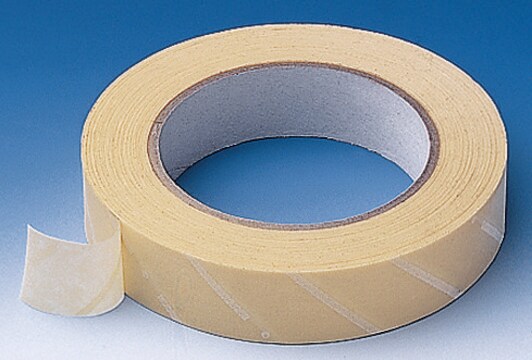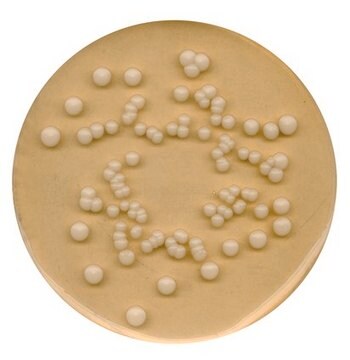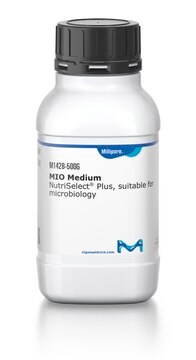05039
Gélose
suitable for microbiology
Synonyme(s) :
Agar, Agar-agar
About This Item
Produits recommandés
Stérilité
non-sterile
Niveau de qualité
Forme
powder
Durée de conservation
limited shelf life, expiry date on the label
Conditionnement
pkg of 50 g
pkg of 500 g
Conditions de stockage
(Tightly closed)
Résidus de calcination
≤5%
Perte
≤12% loss on drying
pH
6-7.5 (1.5%after autoclaving)
Pf
85-95 °C
Température de transition
gel point 33-37 °C (1.5% solution, after autoclaving)
Résistance du gel
>800 g/cm2 (1.5% gel, Nikkan, after autoclaving)
Solubilité
H2O: 1.5% at 70 °C, clear to very faintly turbid, almost colorless
Application(s)
agriculture
microbiology
InChI
1S/C14H24O9/c1-5-8(16)13-11(7(21-5)4-20-13)23-14-10(18)12(19-2)9(17)6(3-15)22-14/h5-18H,3-4H2,1-2H3/t5?,6-,7?,8-,9+,10-,11?,12+,13+,14?/m1/s1
Clé InChI
GYYDPBCUIJTIBM-DYOGSRDZSA-N
Vous recherchez des produits similaires ? Visite Guide de comparaison des produits
Catégories apparentées
Description générale
Application
Code de la classe de stockage
11 - Combustible Solids
Classe de danger pour l'eau (WGK)
WGK 1
Équipement de protection individuelle
Eyeshields, Gloves, type N95 (US)
Faites votre choix parmi les versions les plus récentes :
Déjà en possession de ce produit ?
Retrouvez la documentation relative aux produits que vous avez récemment achetés dans la Bibliothèque de documents.
Les clients ont également consulté
Articles
Culture media provides a habitat with suitable nutrients, energy sources, and certain environmental conditions for the growth of microorganisms. The components of the culture media range from simple sugars to peptones, salts, antibiotics, and complex indicators.
Notre équipe de scientifiques dispose d'une expérience dans tous les secteurs de la recherche, notamment en sciences de la vie, science des matériaux, synthèse chimique, chromatographie, analyse et dans de nombreux autres domaines..
Contacter notre Service technique


